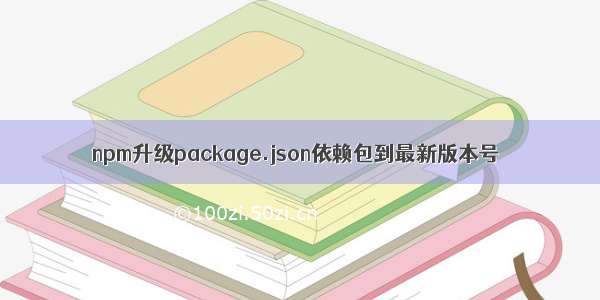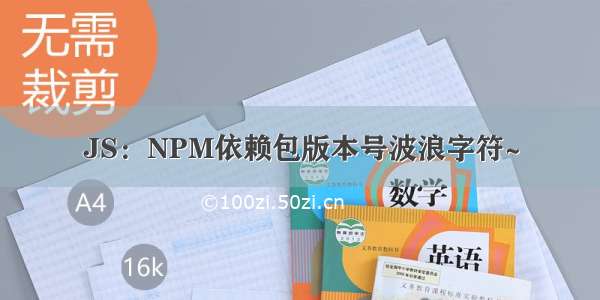
package.json一般也就长这么模样:
{"name": "","description": "","version": "4.17.1","author": "","contributors": [],"license": "MIT","repository": "","homepage": "","keywords": [],"dependencies": {"accepts": "~1.3.7","array-flatten": "1.1.1","body-parser": "^1.19.0","content-disposition": "0.5.3","content-type": "~1.0.4","cookie": "^0.4.0","cookie-signature": "1.0.6","debug": "2.6.9","depd": "~1.1.2","encodeurl": "~1.0.2"},"devDependencies": {},"engines": {"node": ">= 0.10.0"},"files": [],"scripts": {"lint": "eslint .","test": "mocha --require test/support/env --reporter spec --bail --check-leaks test/ test/acceptance/","test-ci": "...","test-cov": "...","test-tap": "mocha --require test/support/env --reporter tap --check-leaks test/ test/acceptance/"}}
其中十分重要的一项就是dependencies,也就是依赖项,每次npm install的时候下载下来的东东都是根据这里来的。
很显然这个dependencies对象中的key是依赖项的名称,值则是版本号,但是版本号前面有的啥也没有,比如:“array-flatten”: “1.1.1”,有的有波浪号,比如:“accepts”: “~1.3.7”,也有的有插入符号,比如:“body-parser”: “^1.19.0”。那这些到底有啥区别呢?
其实也比较简单:
波浪号〜匹配最新补丁版本号,也就是版本号的第三个数字。比如~1.2.3将匹配所有1.2.x版本,但将在1.3.0上停止。
插入符号^ 更宽松。 它匹配的是最新次要版本号,也就是第二个数字。比如:^ 1.2.3将匹配任何1.x.x版本,包括1.3.0,但将在2.0.0上停止。
前面啥符号也没有,很显然意思就是确定唯一指定的版本号。
当然这里还可以写>,>=,<,<=,比如:
"dependencies": {"accepts": "~1.3.7","array-flatten": "1.1.1","body-parser": "^1.19.0","content-disposition": ">0.5.3","content-type": "~1.0.4","cookie": "^0.4.0","cookie-signature": "<1.0.6","debug": ">=2.6.9","depd": "~1.1.2","encodeurl": "<1.0.2"}
意思也很简单,就是大于,或者大于等于,小于或者小于等于后面的版本号。
如果前面是星号*,那意思就是匹配任何版本。
如果版本号的值是latest,那意思安装的永远是最新发布的版本。
如果只匹配版本号的其中一位,除了上面的做法外,还有一种,那就是用x,比如:1.2.x,就可以匹配1.2.1,1.2.2,…,但是1.3.0肯定是不行的,这大家都懂,不用多解释。
最后再举个栗子吧:
"dependencies": {"accepts": "1.3.x"}
















